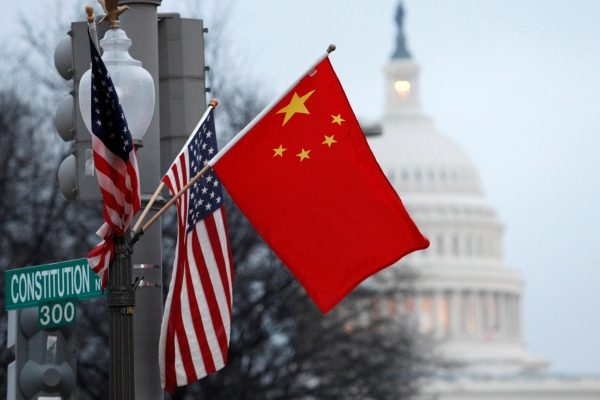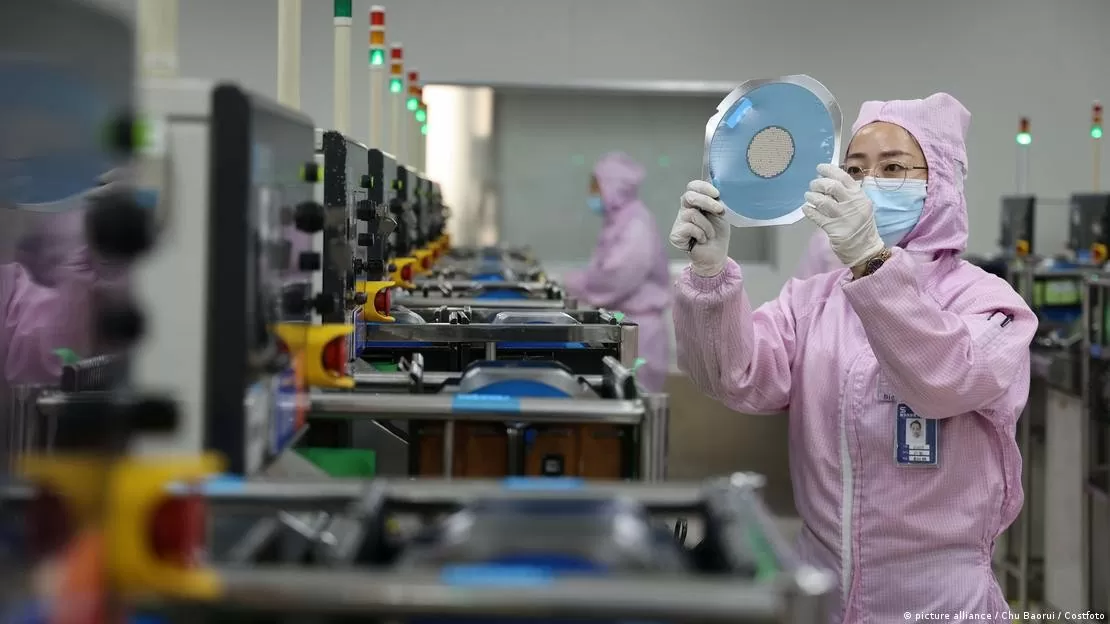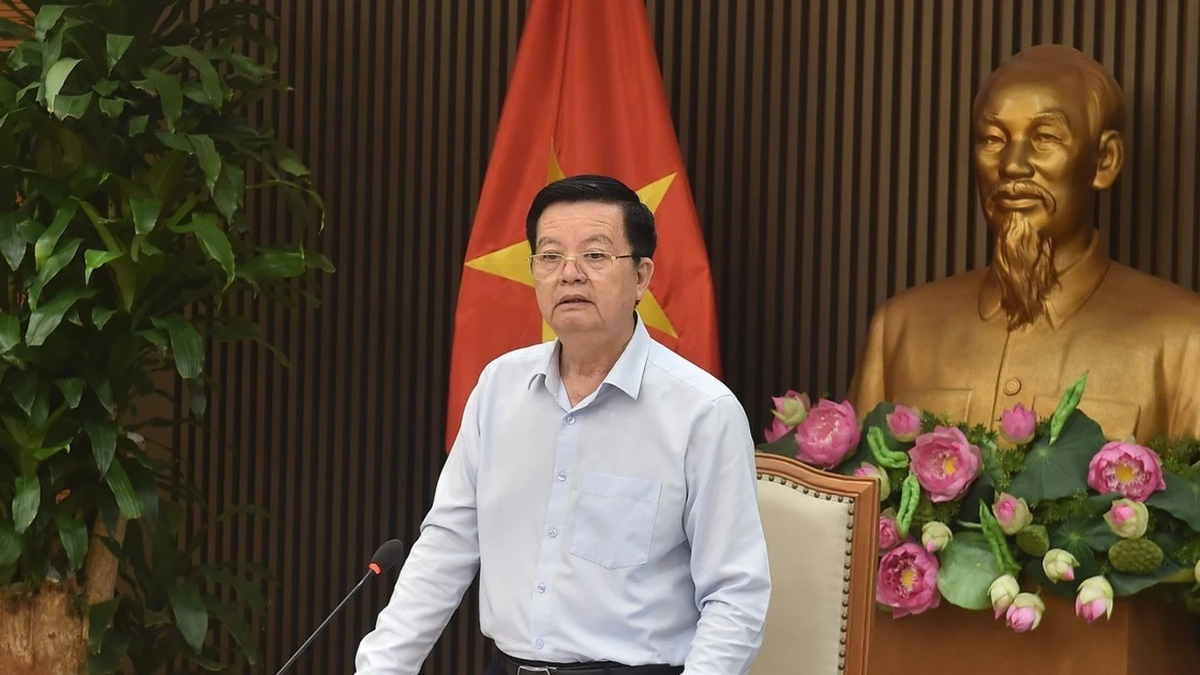The idea of China overtaking the US as the world’s largest economy has been discussed by policymakers and economists for decades. What, they argue, would happen if the US – one of the most dynamic and efficient economies – were overtaken by the world’s most populous economy ?
 |
| According to experts, the current problems facing China are not the most serious ever. Illustrative photo. (Source: East Asia Forum) |
Predictions about exactly when China will overtake the US have been rife since the 2008-2009 financial crisis — which hampered growth in Washington and Europe for years.
Before the Great Recession of 2009, Beijing had seen double-digit annual gross domestic product (GDP) growth for at least five years. In the decade since the crisis, China's economy has continued to grow between 6% and 9% annually. That has come to a halt with the Covid-19 pandemic.
The pandemic has led to strict lockdown measures, a sharp drop in economic growth and the Asian powerhouse is also facing difficulties in the real estate sector.
At its peak, the real estate market contributed nearly a third of China’s GDP. After 2020, many companies went bankrupt and about 20 million unfinished or delayed homes remained unsold.
At the same time, declining trade relations with the West have also weakened growth in the world’s second-largest economy. Having encouraged China’s rise for decades in the late 2010s, the United States has recently moved to contain the economic and military ambitions of the world’s second-largest economy.
Has China's economy peaked?
According to DW , the change in China's economic "fortune" is so obvious that a new term appeared about a year ago: "Peak China."
The theory is that China's economy is currently suffering from a number of structural problems, such as heavy debt, slowing productivity, low consumption and an aging population.
Those weaknesses, coupled with geopolitical tensions and Western trade restrictions, have fueled speculation that Beijing's impending economic dominance may be delayed or never come.
However, according to Mr. Wang Wen, Chongyang Institute of Financial Studies of Renmin University of China, the concept of "peak China" is a "myth", and said that China's total economic output reached nearly 80% of the US output in 2021.
As long as Beijing maintains “internal stability and external peace,” its economy will soon surpass Washington, Wang Wen said.
“Millions of rural Chinese have moved to urban areas, where incomes and quality of life are said to be much higher. China’s urbanization rate is only 65%. If it rises to 80% in the future, that means another 200 to 300 million people will enter urban areas, creating a huge increase in the real economy,” the expert stressed.
 |
| Faced with US export restrictions, China ramps up its own chip production. (Source: DW) |
Productivity growth has "disappeared"
Assessing China's economic situation in recent years, Ms. Loren Brandt, professor of economics at the University of Toronto (Canada) said: "The economy grew too quickly in the early 2000s thanks to high productivity."
Productivity contributed about 70 percent of GDP during China's first three decades of reform, which began in 1978, she added.
“After the financial crisis until now, growth may be only a quarter of what it was before 2008,” said Loren Brandt, who said the country was facing many short-term economic headwinds.
For example, China’s total debt has reached more than 300% of GDP – a large portion of which is owned by local governments. Foreign direct investment has fallen for 12 consecutive months (down 28.2% in the first five months of 2024 alone).
“As long as China maintains internal stability and external peace, its economy will soon surpass that of the US.” Mr. Wang Wen - Chongyang Institute of Financial Studies, Renmin University of China. |
Despite huge investments to boost production of new technologies, some of Beijing's trading partners are restricting Chinese imports.
“This is an economy that has invested heavily in research and development, people and first-class infrastructure,” said Ms. Brandt. “But these are not being leveraged in a way that sustains growth in the economy.”
Beijing is also moving to centralize the economy more through state ownership of industries. Chinese leaders believe the next wave of growth will be built on domestic consumption, allowing the country to become less dependent on foreign exports.
But many social programs have failed to keep up with China’s “economic miracle.” Consumers who can no longer rely on low-cost health care, education and more than basic state pensions will be wary of spending more than they can afford.
Household wealth in the world's second-largest economy has fallen by as much as 30 percent due to the collapse of the property sector, Ms. Brandt said.
The current difficulty is not the most important problem.
The biggest concern is whether all of these factors could lead the Chinese economy to follow Japan’s path. After World War II, Japan experienced an economic miracle, marked by decades of high growth, which led to a huge stock market and real estate bubble.
At its peak, Japan was predicted by some economists to surpass the United States as the world's largest economy.
Then, in 1992, the bubble burst, the fortunes were lost, and the economy fell into recession. Since then, Japan has been unable to make up for the lost growth for decades.
Meanwhile, in the world's second-largest economy, economists point out, China's industrial GDP is already double that of the US. GDP growth last year was 5.2% - more than double Washington's growth rate.
The Asian nation's economy surpassed that of the United States in 2016 in terms of purchasing power parity (PPP).
Over the past 45 years, China's development has faced many economic problems. However, expert Wang Wen pointed out that compared to the recession 30 years ago, the high debt 20 years ago, and the housing crisis 10 years ago, the current problem is not the most serious!
Source: https://baoquocte.vn/trung-quoc-co-du-manh-de-soan-ngoi-my-278253.html





























![[Photo] National Assembly Chairman attends the seminar "Building and operating an international financial center and recommendations for Vietnam"](https://vphoto.vietnam.vn/thumb/1200x675/vietnam/resource/IMAGE/2025/7/28/76393436936e457db31ec84433289f72)





































































Comment (0)